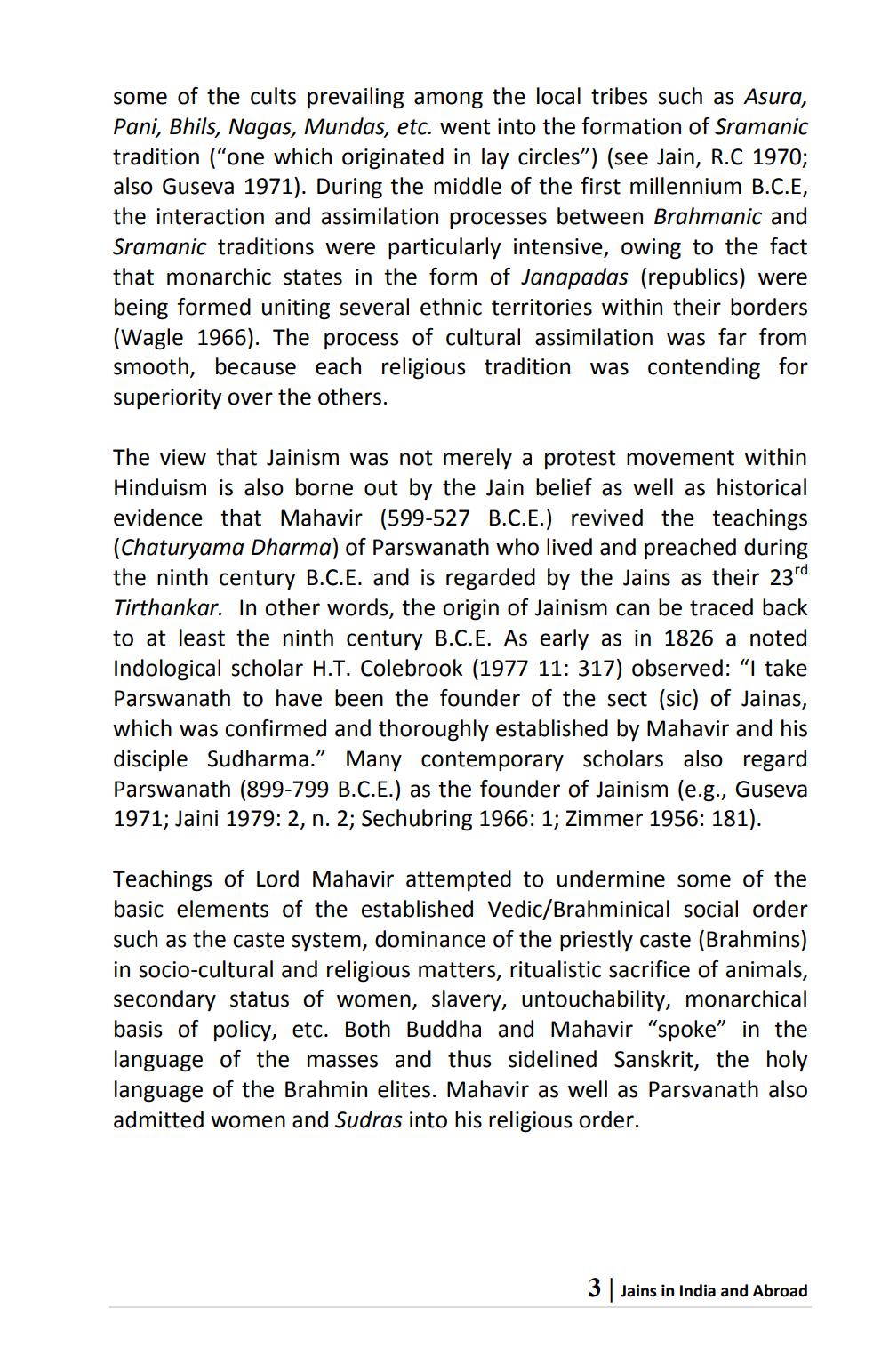________________
some of the cults prevailing among the local tribes such as Asura, Pani, Bhils, Nagas, Mundas, etc. went into the formation of Sramanic tradition ("one which originated in lay circles”) (see Jain, R.C 1970; also Guseva 1971). During the middle of the first millennium B.C.E, the interaction and assimilation processes between Brahmanic and Sramanic traditions were particularly intensive, owing to the fact that monarchic states in the form of Janapadas (republics) were being formed uniting several ethnic territories within their borders (Wagle 1966). The process of cultural assimilation was far from smooth, because each religious tradition was contending for superiority over the others.
The view that Jainism was not merely a protest movement within Hinduism is also borne out by the Jain belief as well as historical evidence that Mahavir (599-527 B.C.E.) revived the teachings (Chaturyama Dharma) of Parswanath who lived and preached during the ninth century B.C.E. and is regarded by the Jains as their 23rd Tirthankar. In other words, the origin of Jainism can be traced back to at least the ninth century B.C.E. As early as in 1826 a noted Indological scholar H.T. Colebrook (1977 11: 317) observed: “I take Parswanath to have been the founder of the sect (sic) of Jainas, which was confirmed and thoroughly established by Mahavir and his disciple Sudharma.” Many contemporary scholars also regard Parswanath (899-799 B.C.E.) as the founder of Jainism (e.g., Guseva 1971; Jaini 1979: 2, n. 2; Sechubring 1966: 1; Zimmer 1956: 181).
Teachings of Lord Mahavir attempted to undermine some of the basic elements of the established Vedic/Brahminical social order such as the caste system, dominance of the priestly caste (Brahmins) in socio-cultural and religious matters, ritualistic sacrifice of animals, secondary status of women, slavery, untouchability, monarchical basis of policy, etc. Both Buddha and Mahavir "spoke" in the language of the masses and thus sidelined Sanskrit, the holy language of the Brahmin elites. Mahavir as well as Parsvanath also admitted women and Sudras into his religious order.
Jains in India and Abroad




